Today, family is defined in many ways and impacted by many unique circumstances. Their dynamics can reflect both their celebrations and their challenges. Regardless of their nature, however, any family should be built on love and support.
Unfortunately, as families are impacted by substance use disorder, it can be difficult to recognize just how important they are in the role of supporting their loved one in their recovery. Combining individualized treatments and family therapy can yield better treatment success rates. With SUD, improved success rates can take the form of reduced relapse rates, improved adherence to medications, reduced psychiatric symptoms, better stress relief, or all of the above.
All too often, people feel they have to navigate substance use disorder on their own. Meanwhile, their families are left to pick up the pieces at home. With the help of family therapy, finding recovery for the entire family doesn’t need to be done in isolation.
Addiction Is a Family Disease
Substance use disorders are often referred to as family diseases, according to sources as wide-ranging as The National Council on Alcoholism and Drug Dependence and Alcoholics Anonymous. While the person with the substance use disorder is typically the one most impacted, substance use causes tremendous amounts of stress on the family as a whole. Worse, it can sometimes put family members in dangerous or frightening situations.
This undue stress on the family can leave loved ones feeling as though they are spinning a hundred plates, each about to fall. The tension between family members can rise as a substance use disorder dominates daily life and leaves everyone wondering what to do. As the tension rises, the family may unknowingly contribute to unhealthy substance use by creating a destructive environment. This can occur emotionally and sometimes physically.
Children are particularly susceptible to the impacts of family members who suffer from substance abuse disorders. Research indicates that children living in the same household with someone with SUD show higher rates of anxiety, depression, oppositional behavior, conduct problems, and aggressive behavior compared to their peers.
This can play a role in their success at school as well as in their social interactions with others. In their teen years, these children may also display mood swings. The largest concern is that they become significantly more likely to form a substance use disorder themselves.
Impact of Substance Abuse on Families
Each family is different, and substance use disorders can impact each one in unique ways. However, very rarely is a family left unchanged.
Some of the negative consequences families experience as a result of SUD include:
- Negative emotions – Families that are impacted by substance use disorders find that members of the family suffer greater amounts of anger, resentment, anxiety, guilt, embarrassment, and much more.
- Safety impacts – Those who suffer from substance use disorders can react in unpredictable ways, both when using the substance and when in need of it. Violence or the fear of violence can endanger the family’s physical or psychological safety.
- Unmet responsibilities – In some families, the roles of the family members can change as the person with SUD fails to manage their responsibilities. In many cases, responsibilities are placed on family members who are not ready or mature enough to accept them, causing extra pressure, anxiety, and even resentment.
- Poor communication – When a family member is misusing substances, they often become the center of attention, and the family inadvertently places their needs and wants before that of the rest of the family. Worse, communication about needs and wants is generally negative.
- Weak structure and boundaries – When there is a lack of structure in a home, harmful decisions become more likely. The other parent may need to work longer hours or remain away from children for an extended time, forcing children to develop coping mechanisms or become enablers.
- Denial – Many families may assume that denial is associated with the person experiencing a substance use disorder. However, denial for families is often refusing to acknowledge that a problem exists or an inability to see the problem clearly.
- Deteriorating relationships – All of the above can serve to weaken relationships between people with SUD and their families. In addition, many people who suffer from substance use disorders shy away from their families and tend to form unhealthy dependencies on others with SUD.
Coping with Addiction in the Family
Because of the many negative impacts that substance use disorders have on families, many family members develop their own methods of coping with the changes. The substance disorder can easily become the central focus of the family dynamic, whether it causes arguments or simply creates tension. When families become fixated on dealing with loved ones suffering from substance use disorders, they can create unhealthy codependencies or enabling behaviors.
When these behaviors occur in a family, they create an environment that can worsen addiction, hinder the recovery process, and continue to negatively impact family members.
These two behaviors are often one focus of family group therapy for addiction:
Codependency
Those who exhibit codependent behaviors adopt behaviors and attitudes that place the concern felt for a loved one experiencing substance use disorder ahead of their own needs and wants. This unhealthy fixation is the result of feeling a need to adapt to the changing family dynamic.
Codependent behaviors include:
- Constant worry over the substance use exhibited by a family member, accompanied by concern over potential consequences.
- Changing relationship behaviors with others by avoiding certain individuals, making excuses for the loved one with SUD, or lying about substance use. These are signs of denial.
- Displaying violent or irrational behaviors when experiencing events associated with SUD.
- Ignoring one’s own physical or mental health in favor of focusing on a loved one with SUD, resulting in low self-esteem.
- Projecting anger onto others, including a spouse, children, or even pets.
- Forming unhealthy behaviors and fixations such as over-eating, over-indulgence in a hobby or television, or time-consuming internet use.
- Making choices about mood based on a loved one instead of one’s own feelings.
Enabling
Enabling is frequently thought of as providing a person with a substance use disorder with the actual substance or a physical location to use it. However, it more often involves removing the natural negative consequences that should affect a person who uses drugs or alcohol.
Enabling behaviors include:
- Contributing to the disorder by using drugs or alcohol with the person experiencing substance use disorder.
- Rather than starting an argument, keeping one’s feelings on substance use locked away inside.
- Accepting the person with SUD’s rationale for using.
- Making excuses or ensuring the person’s responsibilities are upheld by completing them on their behalf.
- Using extra energy to ensure the home appears normal on behalf of the person with SUD.
- When consequences occur naturally, feeling guilty for one’s inability to prevent them.
Objectives of Family Therapy for Addiction
Family therapy seeks to achieve two main goals.
These are:
- Ensuring that the person being treated for SUD feels loved and supported. With family therapy, the chance for relapse decreases, there is a greater likelihood that the person receiving treatment is able to build positive changes in mental and physical health, and the individual has the support they need for long-term recovery.
- Encouraging the family as a whole to improve their mental health. One of the first steps for any family is to learn to forgive and cope in a healthy way, and family therapy helps to promote the trust necessary to accomplish this. Therapy provides the opportunity for everyone to speak their mind to ease feelings of anger, sadness, fear, and frustration.
Benefits of Family Therapy for Addiction Recovery
When the family unit plays an active role in the recovery of a person with a substance use disorder, there are significant improvements in recovery.
Some of the benefits include:
- The ability to act as an accountability partner to keep family members motivated and active during the recovery process.
- Making the family members active students who learn about substance use disorders, the recovery process, and the long-term goals of recovery.
- An open forum for the family to discuss substance use and ask questions in a safe environment.
- Helping the family to provide support for their loved one to help prevent relapse.
- An opportunity to confront the emotional side of substance use disorders by diffusing anxiety, fears, and even anger.
- Creating a team of individuals who work together to develop and understand the skills and strategies necessary to support people on the path to recovery.
- Improvements in communication within the family.
- Providing help for the family outside of the substance use disorder.
- Establishing support to work on mental health for all family members as a result of or as a contributing factor to the substance use disorder.
Encouraging Family Group Therapy
There are many reasons a person with SUD or a member of the family may not want to participate in therapy sessions. Sometimes, this is a result of exhaustion from the many trials of a relationship with a person suffering from a substance use disorder. In other cases, there is an internal fear of confronting their own mental health or even a concern about the risks versus the rewards. No matter the circumstances, family therapy takes commitment.
One way to encourage that commitment is to suggest a one-on-one meeting between the reluctant individual and a counselor who can explore the reluctance. By supporting this individual as they participate in a one-on-one setting with a counselor, other family members can help them alleviate potential concerns in a low-pressure environment.
One technique used in therapy for addiction here at Lilac is called Conscious Parenting, which teaches parents to respond to their children in ways that are more thoughtful, mindful, and emotionally intelligent.
For family therapy to have the benefits listed above, all involved must be willing to participate. Sometimes, it just takes exposure to the process, a trusted individual with knowledge about the process, and learning about its benefits to help bring all family members on board.
Luxury Addiction Treatment Services in San Diego
No matter what your family dynamic looks like, you and your family deserve the love and support family therapy can help you rebuild. Family therapy can be the first step to repairing relationships, rebuilding communication, and creating a safe road to recovery for everyone involved, not just the person experiencing substance use disorder. Family therapy is a time to heal as well as an opportunity to work together to lift the weight from one another and focus on rebuilding.
We offer luxury addiction treatment in San Diego. Our inpatient and outpatient resources enables us to design a truly individualized treatment program. The road to recovery can be long, but it doesn’t have to mean staying in a facility. Clients may finish treatment in our residential program then find value in attending outpatient treatment while retaining the ability to work and fulfill family responsibilities at home.
Sources

CADC II, Certified AOD Counselor
Nora Jenkins has made the quality and committed care we provide at Lilac Recovery Center possible. Nora is experienced in providing care to assist in rebuilding relationships to support healthy, long-term recovery. Her professional background includes clinical management, program administration, and counseling.







